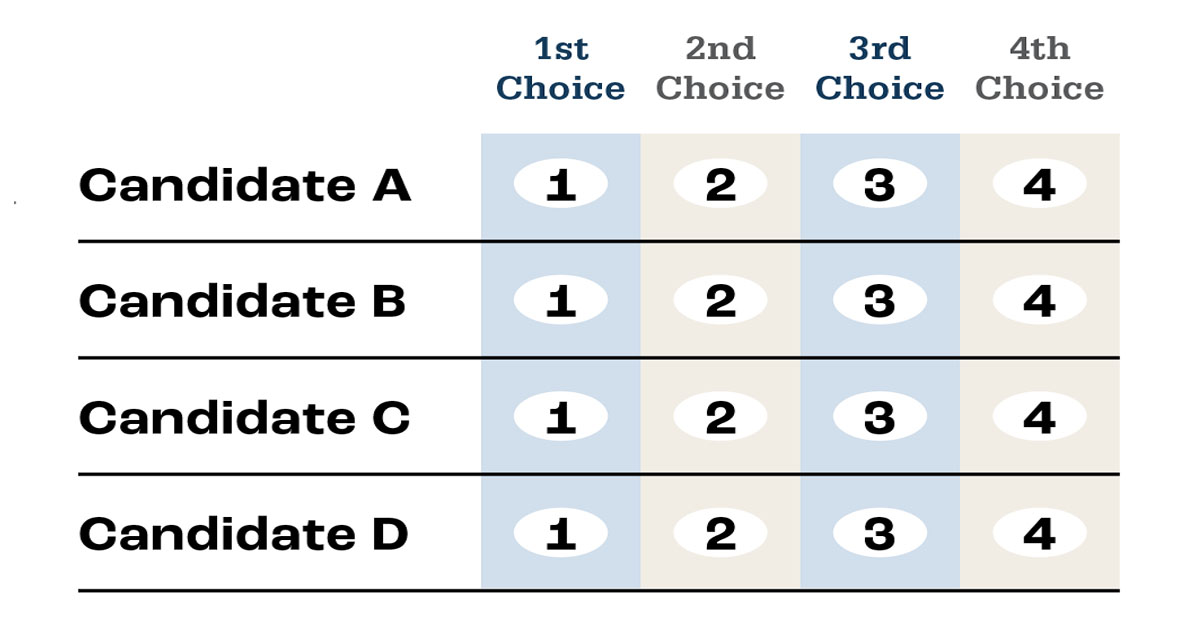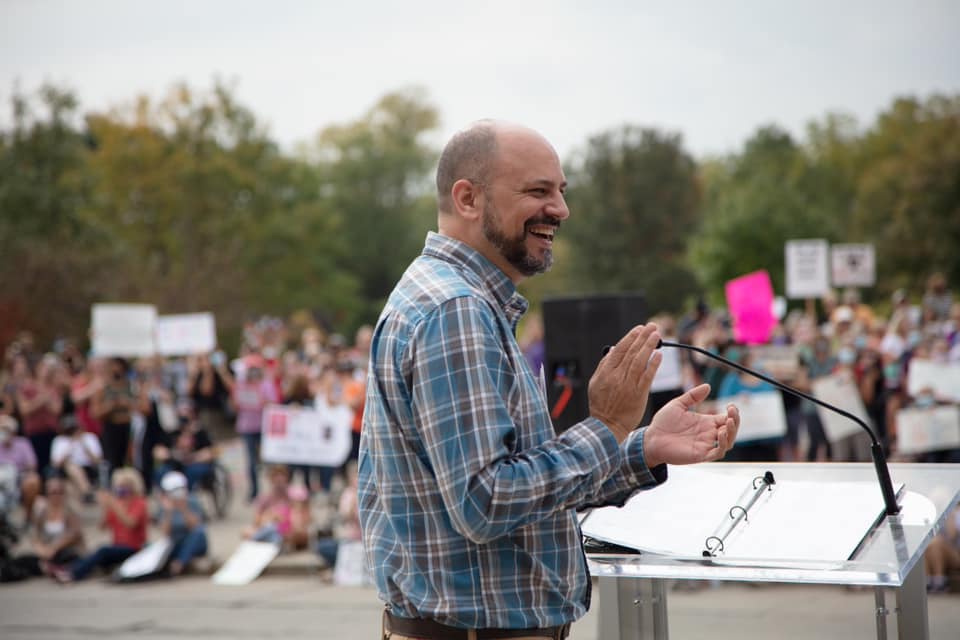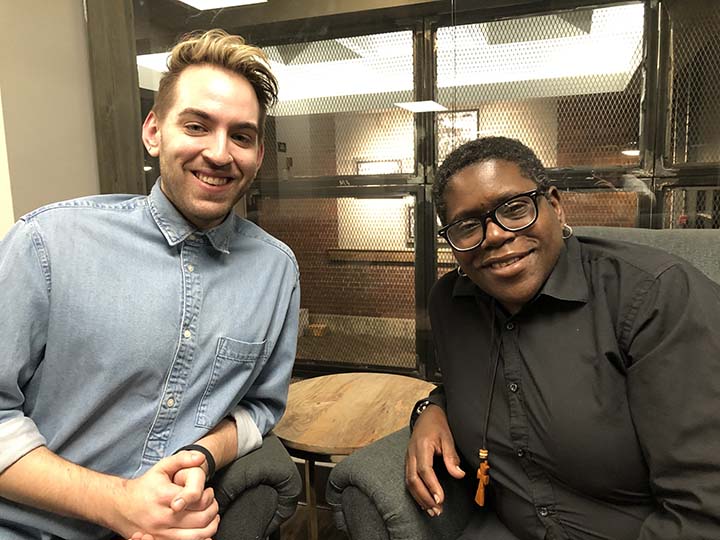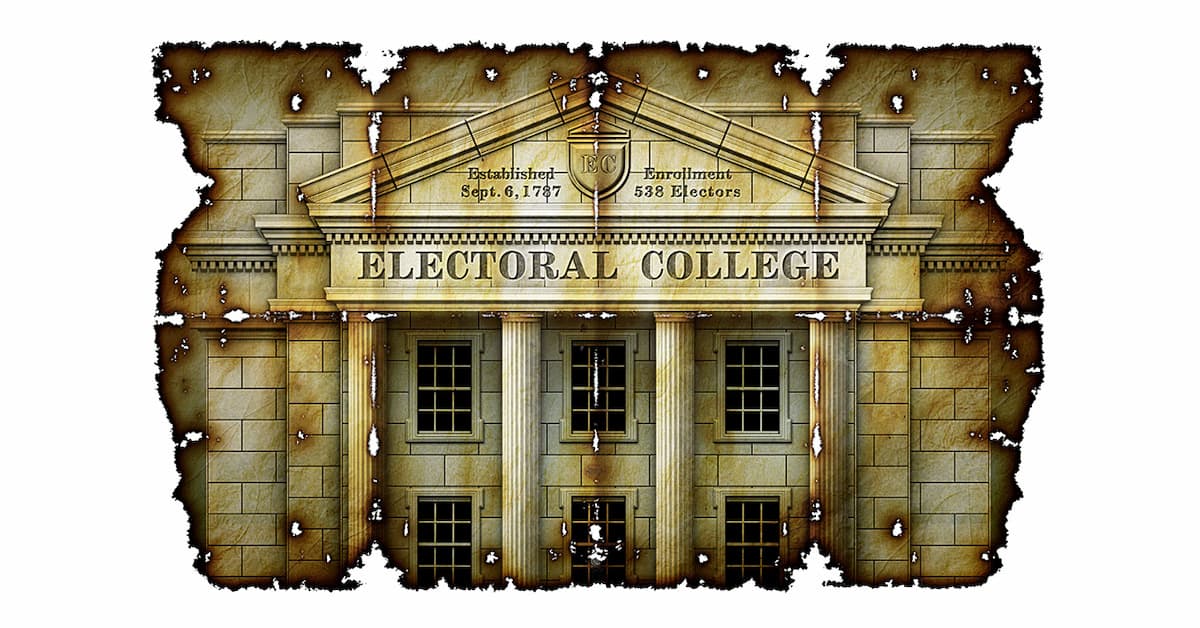A nationwide trend to explore “ranked choice voting” that started last year is starting to appear in different forms across Iowa and Illinois.
Several Illinois cities will hold referendums this November on whether to adopt ranked choice voting (“RCV”), which empowers voters to rank all candidates running for an office instead of just voting for one. Cedar Rapids, Ia., studied ranked choice voting for a year before rejecting it earlier this week, for now.
A statewide group, Better Ballot Iowa, is working to convince legislators to officially allow “RCV.” The Iowa Green Party considered a ranked choice proposal as part of its platform this year. And when Iowa’s caucus system earned nationwide criticism in 2020 for its chaos and confusion, “RCV” was one of the better alternatives offered by groups including the Public Interest Network.
The trend grows out of an overall concern about voter access, and frustration with the divisive, “winner takes all” traditional systems like the Electoral College used to elect the President. Advocates believe the system is a better way to listen to all voters’ input more fully, and some say it actually leads to more diverse elected officials.
“Data shows that more women and candidates of color run in RCV elections compared to traditional “one choice” elections,” writes Deb Otis, director of research for FairVote.org, in a column for the nonprofit Divided We Fall. “Women have won nearly half (48%) of municipal races in RCV cities in the last decade, compared to just 31% in municipal offices across the country. After employing RCV in the last year, New York City elected its first majority-female city council. Likewise, Minneapolis elected its first majority-minority City Council, and Salt Lake City elected its first majority-minority and majority-LGBTQ+ City Council.”
Opponents mainly object to ranked choice voting out of concerns that voters will find it too complex and confusing.
Overall, RCV essentially empowers voters to rank all candidates, then takes those extending rankings into account if no candidate earns a clear majority (50 percent plus one). You can learn more about ranked-choice voting at FairVote.org’s guide.
Cedar Rapids, Evanston among those exploring ranked choice voting
Here’s a look at the moves afoot in Illinois and Iowa to explore some form of ranked choice voting:
• Evanston, Ill., voters will decide this November whether to enact ranked choice voting for all of its races.
• The Berwyn Township outside of Chicago will also vote on ranked-choice voting this fall, writes Madeleine Doubek in an article for Crain’s Chicago Business.
• Cedar Rapids, Ia., studied “RCV” for almost a year before rejecting it earlier this week.
• Better Ballot Iowa is working throughout the state to join a push for an “RCV” bill at the state or federal level, which is required to change election laws. They’re also working with groups like the League of Women Voters to push for the change.
• The Iowa Green Party considered a ranked choice voting proposal for its platform this year. The idea was floated by Bob Mueller, a ranked choice voting advocate who lives in Mount Pleasant.
National momentum for ranked choice voting also growing
Nationwide, Wyoming began to explore ranked choice voting after its most recent election, and Nevada may become the third state along with Alaska and Maine to use “RCV” for all of its elections statewide. All in all, 29 states had some form of exploration of RCV in 2021, says the Pew Center. Its influence is international, and beyond politics, writes Fairvote.org.
“Ranked choice voting is widely used overseas, including in governmental and party elections for Australia’s House of Representatives, presidents of Ireland and Sri Lanka, the mayor of London, party leaders of all of Canada’s five national parties. Recommended by Robert’s Rules of Order as an option, it is used by some of the world’s largest private associations along with student government elections in more than 75 American colleges and universities”
Some experts caution that “RCV” may become a “barrier to voting” because voters may not easily understand how it works. At Evanston’s city council meeting where the Nov. 8 referendum was unanimously approved, political science professor Jason A. McDaniel of San Francisco State University said his studied showed RCV could decrease voter turnout by 2 to 5 percent.
Opposition has also begun in some cities. Bloomington, Ill., voters will consider a referendum to ban RCV. California voters will also consider a referendum to ban RCV. In Florida, legislators banned the practice after several cities moved forth with “RCV” without waiting for official state approval.
For more information on opportunities to learn about ranked choice voting, go to Better Ballot Iowa’s website.






